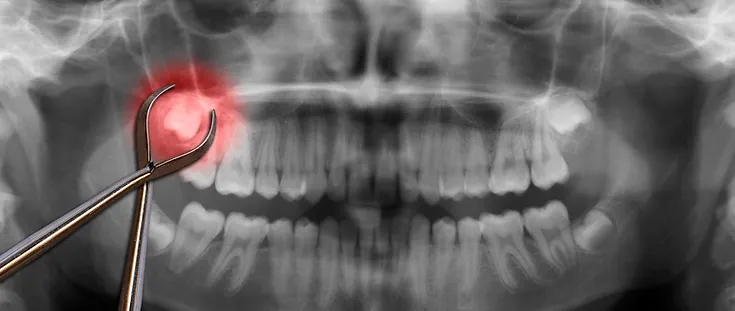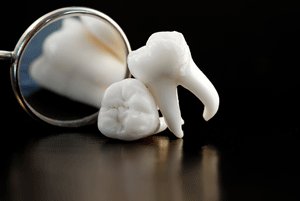
Need a Tooth Removed? No Worries, We've Got You Covered
In some cases, when a tooth is extensively damaged or in a complex position that doesn’t allow for simple extraction, an oral and maxillofacial surgeon may need to perform a surgical extraction. This type of extraction is slightly more complex and may involve incisions in the gums or removal of bone to expose the tooth and facilitate its extraction.
Surgical extractions require precision and expertise to ensure a successful outcome with minimal complications. Dr. Blal, an experienced oral and maxillofacial surgeon with over 20 years of experience, can assist you in undergoing the treatment with the best possible results and without unnecessary risks. Don’t hesitate to reach out to our clinic for more information or to schedule an appointment. Your comfort and well-being are our top priorities.

Surgical extraction, as the name suggests, is a surgical procedure that requires a high level of skill and expertise due to potential risks like infection, nerve damage, or damage to neighboring teeth. Choosing the right surgeon is critical for a successful outcome.
An oral and maxillofacial surgeon is a physician who has undergone intensive five-year training in surgery. This advanced training, coupled with an in-depth understanding of the complex anatomy of the oral and maxillofacial region, makes them the most qualified to perform surgical extractions.
An oral and maxillofacial surgeon can provide the correct diagnosis regarding the need for extraction and the appropriate method to perform it.
Oral and maxillofacial surgeons have the capability to perform surgery with minimal patient discomfort and distress.
Whether you’re dealing with extensively damaged teeth, difficult tooth positioning, or proximity to sinuses and nerves, an oral and maxillofacial surgeon is the most skilled professional to efficiently and successfully manage any potential complication that may arise during or after treatment, while ensuring optimal results.
Choosing an experienced specialist in oral and maxillofacial surgery ensures that you make an informed decision regarding your oral health. Opting for a surgeon with extensive experience guarantees the best possible outcome for you. From the initial evaluation to post-operative care, treatment by an oral and maxillofacial surgeon makes all the difference.